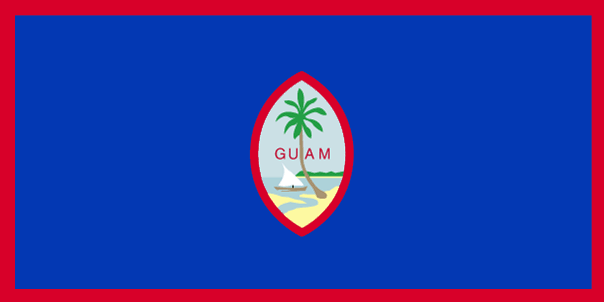
The Flag of Guam
Earlier this month, CU Boulder communications professor Tiara Na’puti testified on behalf of Guam’s decolonization and demilitarization efforts to the U.N.
Na’puti was one of 17 Chamorro representatives who travelled to New York for the U.N.’s Fourth Committee, a special political and decolonization committee that usually meets the first week of October.
During her four-minute testimony, Na’puti strongly advocated for the demilitarization of Guam and for the U.S. to help repair the environmental damages it has inflicted to the island.
“We know that the U.S. military is one of the world’s most extensive industrial enterprises, generating huge quantities of hazardous waste and virtually every other toxic substance known to humanity,” Na’puti said during her testimony. “The U.S. military continues its program of contamination.”
Na’puti also advocated for the U.N. to fulfill Guam Gov. Eddie Calvo’s request to send a U.N. visiting mission to investigate the nation’s current state and better define the steps to decolonization.
Na’puti uses her work as a communications professor to be a stronger advocate for the citizens of Guam and help them understand the “meaningful actions to achieve justice for our communities.”
“Our main goal was to get the U.N. to seriously consider the resolution and the language — the strong language — in the resolution that works to hold the U.S. accountable and the U.N. accountable to do the work to decolonize these places,” Na’puti said.
This June, the Committee of 24, an organization dedicated to achieving the decolonization of Guam, submitted a resolution to the U.N. stating their objective for effectively achieving Guam’s independence.
The resolution calls for decolonization on the foundation of citizens’ inalienable rights. Though Guam has been a U.S. territory since 1898, the Chamorro people still do not have the right to vote in U.S. elections and have only one elected representative for the island.
Guam is located in the Western Pacific, less than 2,000 miles away from Japan and has served as a prime location for the U.S. military since World War II. The small island of around 160,000 people is currently home to the Andersen Air Force Base and Naval Base Guam, which together hold roughly 7,000 active military personnel.
The heavy military presence in Guam has led to many negative effects on the island’s environment. The committee’s resolution calls for the U.S. to alleviate the problems it has created. It requests that the U.S. “protect and conserve the environment of the territory against any degradation and the impact of militarization on the environment” and “promote the economic and social sustainable development of the Territory.”
Military presence on the island has also affected the Chamorro people’s safety. The U.S. is a military stronghold in the Western Pacific. Therefore, Guam has received nuclear threats from North Korea for decades.
“There’s been an ongoing peace movement in Guam for a long time that doesn’t get heard because the only conversation is about security and military threats,” said Na’puti.
Recent tensions between President Donald Trump and North Korean leader Kim Jong Un made threats against Guam more volatile. North Korea threatened the livelihood of Guam in August, hours after Trump tweeted that communicating with North Korea “is not the answer” to the countries’ relationship.
“They’re waking up on the other side of the world to hear that a place that considers them their territory, the United States, and a place that’s near to them physically, North Korea, are making decisions with these people in the crosshairs,” Na’puti said.
Guam is one of only 17 remaining non-self-governing territories in the world. This status essentially removes citizens of the right to vote or participate in government affairs.
Na’puti emphasized the role communication plays in persuading people about the attention that has yet to be given to the people in Guam and other non-self-governing territories.
Contact CU Independent News Writer Megan Cunninghame at megan.cunninghame@colorado.edu.
